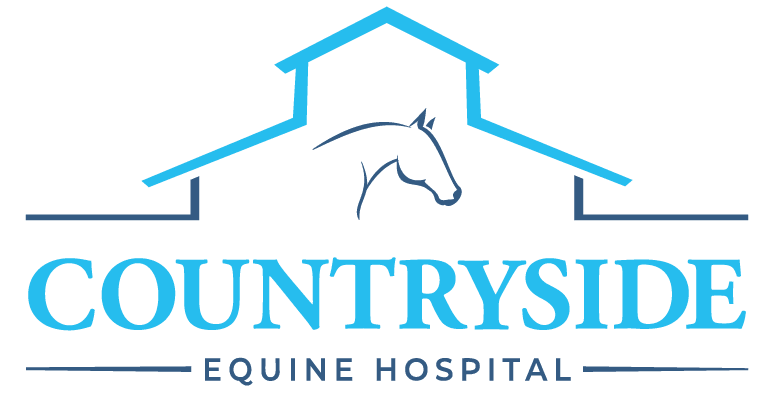Equine diagnostics is much more than using the latest technology, tools, and equipment to evaluate the health of your horse. Our Countryside team takes a holistic approach to your horse's care, looking at the whole picture and accounting for subtle signs, behaviors, and physical changes that may indicate an underlying health concern. However, we also rely heavily on our state-of-the-art diagnostic capabilities to reach an accurate diagnosis quickly and efficiently, both in the field and at our facility.
Our commitment to finding answers when your horse isn’t at the top of the game has led us to invest in the best of the best. Cutting-edge equipment and technology allow us to identify health issues early, implement targeted treatment plans, and support optimal outcomes for your horse’s long-term health and performance.
When your horse needs a prompt, accurate diagnosis, turn to our team—we won’t leave you without an answer. Give us a call at (770) 787-4711 or book an appointment online.
Digital Radiography
Equine digital radiography is a noninvasive imaging technology that allows us to capture highly detailed internal views of your horse in seconds. Similar to a digital camera, images are available almost instantly—without the need for chemical film processing. Our veterinarians utilize this advanced technology to assess a wide range of conditions, from orthopedic concerns such as lameness to cardiovascular health. Digital radiography is a crucial tool in our diagnostic process, offering precise insights into your horse's bones, joints, and organs.
Ultrasound
Ultrasonography is a quick, painless, and effective diagnostic tool that uses sound waves to create real-time images of your horse's internal structures. This noninvasive technology is invaluable for evaluating soft tissues, including tendons, ligaments, and organs.
At Countryside, our experienced equine veterinarians use ultrasound to diagnose and monitor a range of conditions, such as:
- Lameness and ligament injuries
- Tendon abnormalities
- Pregnancy evaluations
- Colic assessments
- Masses
- Abscesses
- Inflammatory conditions
In addition, ultrasound technology plays a key role in guiding medical procedures such as targeted injections, ensuring precision and effectiveness.
Upper Airway Endoscopy
Our state-of-the-art endoscopic equipment provides a real-time view of the horse's upper respiratory tract, helping to diagnose and manage conditions affecting the pharynx, larynx, guttural pouches, and trachea. Upper airway video endoscopy is particularly valuable for sport and racehorses, as respiratory issues can significantly impact performance.
Common signs indicating the need for an airway endoscopy include:
- Reduced stamina or energy levels
- Loud or labored breathing, especially during exercise
- Nasal discharge (mucus, pus, blood, or food)
- Persistent coughing or wheezing
- Facial swelling
Endoscopy may also be utilized alongside radiography, ultrasound, biopsy, or cytology to confirm a diagnosis and guide treatment plans.
Find An Answer with Equine Diagnostics
At Countryside Equine Hospital, our dedication to advanced diagnostics and technology ensures that you always receive an answer about your horse’s health. Whether at our facility or in the field, we are committed to delivering precise, timely, and compassionate veterinary services to support your horse’s health and performance.
Contact us today at (770) 787-4711 to schedule diagnostic testing or learn more about our equine diagnostic services.
